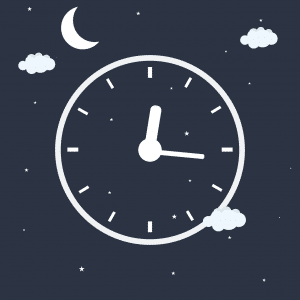When it comes to our health, it can be so much easier to talk about what’s ailing us physically than what is bothering us mentally. But mental health for older adults is something that needs to be addressed, because no age group is immune to these issues. In fact, with the many changes both physical and emotional that come with aging, psychological issues like anxiety can become more of a problem. It’s important to recognize what is just normal worrying and what is anxiety, as well as to find ways to relieve the feelings of anxiousness you might be experiencing.
Anxiety and Older Adults
For those dealing with any kind of mental health concern, you are certainly not alone, especially if you are an older adult. According to the World Health Organization, mental health issues affect approximately 15% of the population over the age of 60, and, according to the CDC, about 20% of the population over the age of 55. When it comes to anxiety, nearly 4% of older adults in the U.S. are affected.

The risk factors for anxiety in older adults include:
- General feelings of poor health
- Sleep problems
- Chronic physical conditions, such as COPD, diabetes, or cardiovascular disease
- Taking medications with psychological side effects
- Physical impairments that affect everyday life
- Traumatic or difficult childhood
- Stressful life events, like the death of a spouse or a diagnosis of a serious medical condition
It’s clear that anxiety is a widespread problem, and, with that long list of risk factors, it’s also clear that anxiety can end up being a problem for many older adults. But it can be tough for some people to talk about, perhaps because there is still a stigma surrounding mental health issues, or maybe because you might be very focused on communicating the physical problems you might be experiencing. Whatever the case, there’s no need to brush off feelings of anxiety. In fact, you should know how to identify it so you can move forward and begin feeling better.
Is It Anxiety?
So how do we actually define anxiety, and what should you be looking out for? Well, while it’s completely normal to be anxious sometimes, you could have an anxiety disorder if you frequently and persistently experience intense feelings of tension or worry that interfere with your well-being, and that even sometimes cause negative physical reactions such as increased blood pressure. The specific signs of anxiety are varied, and can include:

- Having irrational fears or experiencing excessive worry
- Suffering from panic attacks
- Avoiding social situations or feeling like you want to isolate yourself
- Being uncharacteristically angry, aggressive, or irritable
- Feeling very restless
- Having trouble falling asleep or staying asleep
- Feeling extremely fatigued
- Struggling with focus and concentration
- Having memory issues
Finding Relief
If any of the above sounds like you, the first step is acknowledging what you are experiencing and even naming it for what it is. Give yourself permission to feel what you feel! And then, when you’re ready, consider speaking to a mental health professional. In addition to that, though, you can try some coping strategies to help you find relief from your anxiety. Start by practicing some basic self-care; namely, make sure you’re eating right, getting some exercise that you enjoy, and finding ways to laugh every day. Then, try out some different strategies and see if any of the following works for you:
- Keeping it consistent – There’s a lot to be said for sticking to a routine, especially when anxiety rears its ugly head. Sure, there are times when the normalcy of doing all those mundane tasks in the same order – getting up, getting your coffee, reading the paper, texting a loved one, showering, etc – can get old or boring, but that’s not always the case when you’re feeling extra anxious. At these times, a set list of daily tasks can bring a much needed sense of calm and comfort. And when you’re feeling a bit more like yourself, then you can be ready to shake things up!
- Getting your relaxation on – You might also need to add something extra into your daily routine: some exercises to calm the mind. It can be exercise in the literal, physical sense, like yoga or Tai Chi, both of which can calm your mind, increase respiration, and lower blood pressure; or, it can be as simple as listening to soothing music, following a relaxation app, or just sitting and doing breathing exercises.
- Putting things in perspective – For many people, anxiety can distort their sense of reality, meaning that little setbacks or negative interactions can take on epic proportions in their minds. If this happens to you, try to take a step back and put things in perspective – put that one negative thing next to the rest of your day, week, month, year and see how it really stacks up. Is it as big as you originally thought it was? Probably not. A great way to keep up this practice is by journaling whenever these thoughts invade your headspace; writing it all down can help you to regain perspective, as well as make sense of what triggers these feelings and give you an idea of what helps you move forward each time.

Get at least 6-9 hours of sleep every night to help lower anxiety levels.
- Not skimping on your sleep – Remember, even older adults need 6-9 hours of sleep a night! And not getting enough sleep – or enough good quality sleep – can really make a difference in your anxiety levels. If you’re having trouble falling asleep or staying asleep, try some simple strategies like avoiding caffeine in the afternoon/evening, taking screens out of the bedroom and stopping your digital time at least an hour before bedtime, getting more exercise, establishing a soothing bedtime routine, or even talking to your doctor if necessary.
- Reaching out – This last strategy might just be the most important, and the most effective, other than speaking to a mental health professional. Anxiety can lead to isolation and even depression, so it’s vitally important that you reach out to others and seek some social support as soon as you can when experiencing anxiety. Connecting with friends and family, or even just being around others in general, can go a surprisingly long way toward dissipating those anxious feelings. If you can’t connect in person right now, you still have so many options for seeing friendly faces: try video chatting with apps like FaceTime, Zoom, or WhatsApp or joining an online class (again, yoga is a great option).
Remember, if you’re experiencing anxiety, don’t suffer alone. Speak to your doctor, reach out to loved ones, and take the time to be good to yourself.
